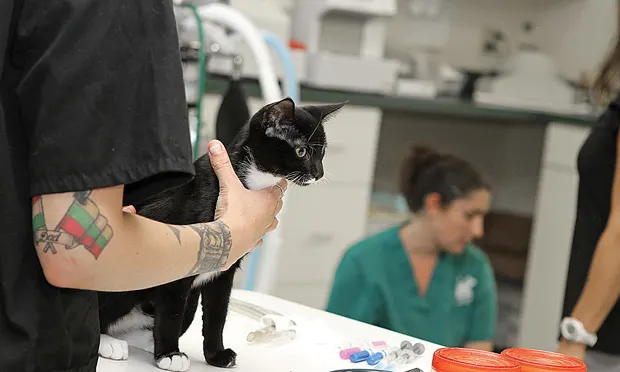Should Veterinary Professionals Have Tattoos?

The patients we see do not have an opinion of our hairstyle, hair color, clothing, or ink that may permanently decorate our body. As long as we speak to them kindly, offer them a treat or a belly rub, and act as their advocate, most patients are just fine with who we are and what we look like.
However, those patients that come to our practices are attached to clients, many of whom, unfortunately, judge us and form an opinion from what they see. Those same clients expect a level of professionalism in the way we look and act in the veterinary practice environment.
Related Article: The Team's Appearance: Do First Impressions Really Count?
The true concern is whether the tattoo deters our clients from believing we provided exceptional care and service.
Do Looks Count?
Why is our professional image important? As veterinary professionals, we cater to clients of different social and economic backgrounds with different opinions, yet like other professionals, our appearance and actions must appeal to the masses.
We need to consider our clientele so we know what they may be looking for in every professional business they patronize—what is their average age, income, and social background? Our clients expect the same level of professionalism from team members in their physician, dentist, lawyer, or accountant’s office, and the fact is, the team’s appearance will often play a role when clients select service providers.
Related Article: Addressing a Team Member With Poor Appearance
What Really Matters
A veterinary practice is a professional business. The bottom line is not whether a team member should have a tattoo; the true concern is whether the tattoo deters our clients from believing we provided them and their pets with exceptional care and service. Anything that has the potential to cause clients to question our team’s credibility and dedication is a problem. When educating a client about his or her pet, the focus must be on the client and the patient; team members should not allow any distractions.
The Point
Team members who have tattoos likely believe the tattoos are an important method of individual expression. However, our professional appearance is equally important in a veterinary practice. I believe that with forethought and a little imagination, it is possible to find the right balance between expressing ourselves, maintaining our professional image, and serving our patients (and their owners) in the manner they expect.